Labour Market Impact Assessment (LMIA) in Canada
A&M Canadian Immigration Law Corporation
Labour Market Impact Assessment (LMIA) in Canada
If you are a Canadian employer looking to hire a foreign worker, you may need a Labour Market Impact Assessment (LMIA). An LMIA is a document issued by Employment and Social Development Canada (ESDC) that determines whether hiring a foreign worker will have a positive, neutral, or negative effect on the Canadian labour market.
What is the Purpose of an LMIA?
The LMIA ensures that hiring a foreign worker will not displace Canadian citizens or permanent residents from available job opportunities. It confirms that:
- There is a genuine need for the foreign worker.
- No qualified Canadians or permanent residents are available to fill the position.
Employer Requirements for an LMIA
To obtain a positive LMIA, employers must:
- Advertise the position on multiple job platforms to show recruitment efforts in Canada.
- Offer fair wages and working conditions that meet Canadian standards.
- Provide detailed business and job information to demonstrate the legitimacy of the role.
Positive vs. Negative LMIA
- A positive LMIA means the employer is approved to hire a foreign worker. With this document, the foreign worker can apply for a Canadian work permit.
- A negative LMIA means the request was denied because suitable Canadian candidates were available.
Benefits for Foreign Workers
A positive LMIA is often the first step in obtaining a Canadian work permit. In some cases, it can also help foreign workers earn extra points under the Express Entry system, supporting their path to permanent residency in Canada.
Why Work with an Immigration Lawyer?
The LMIA application process is complex, requiring careful preparation and documentation. Errors can cause delays or refusals. Our law firm helps
employers submit strong LMIA applications and advises foreign workers on how to use LMIA approvals to apply for work permits and permanent residency.
Frequently Asked Questions
Next
up: LMIA-Exempt Work Permit






